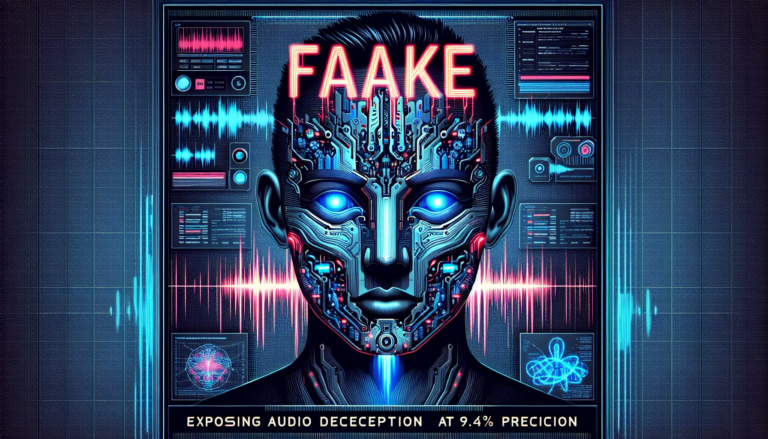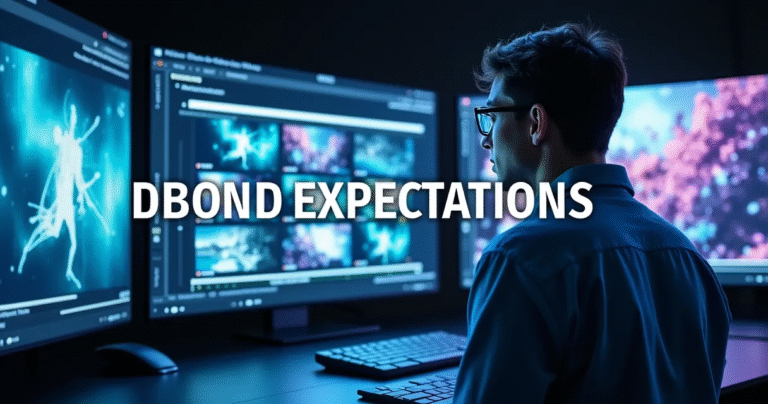Advancements in Audio Deepfake Detection
Recent breakthroughs in AI technology are revolutionizing the fight against audio deepfakes.
Google’s AI Audio Detector
Google’s AI-based audio deepfake detection tool achieves an impressive 97.4% accuracy, marking a significant step in combating audio fraud. This powerful tool has the potential to greatly reduce the spread of false information and misinformation through manipulated audio recordings. Furthermore, the development of AI-based deepfake detection technology also holds promise for applications in other fields, such as cybersecurity and ai in warfare technology. With the advancements in AI, we can better equip ourselves to identify and mitigate the potential risks associated with manipulated audio content. In addition to safeguarding against audio manipulation, the integration of such technologies extends to areas like governance and law enforcement, where ensuring the authenticity of audio evidence is crucial. Similarly, AI models for financial crime detection are advancing rapidly, enabling institutions to identify fraudulent activities faster and with greater accuracy. By leveraging AI in these critical areas, society can address a wide spectrum of digital threats, ensuring greater security and trust in various sectors.
DeepHEMA AI Model
The DeepHEMA AI model excels in real-world scenarios, effectively detecting deepfakes even in short or heavily edited audio clips.
Long-Term Speech Pattern Analysis
Research shows that analyzing long-term speech patterns significantly improves the accuracy of deepfake detection algorithms.
Audio Watermarking
Implementing proprietary watermarking techniques on audio content provides an additional layer of security in identifying deepfakes.
Competitions Drive Innovation
Organizing competitions and challenges has spurred advancements in deepfake detection technologies, encouraging developers to innovate.
Increased Focus on Regulation
Government bodies and tech giants are developing regulations and safeguards to combat audio deepfakes, addressing potential fraudulent activities.
The Rise of Deepfake Audio and Google's Revolutionary Solution
In an era where digital deception is becoming increasingly sophisticated, Google has emerged as a frontrunner in the battle against audio deepfakes. The tech giant's recent development of an AI model capable of distinguishing between real and fake audio with remarkable accuracy has sent ripples through the tech community and beyond.
But what exactly are deepfakes, and why is Google's innovation so crucial? Let's dive into the world of audio forensics and explore how this groundbreaking technology could reshape our digital landscape.
Understanding Deepfake Audio: A Growing Threat
Deepfake audio refers to artificially generated or manipulated sound that mimics a real person's voice. These sophisticated forgeries can be used to spread misinformation, commit fraud, or damage reputations. As the technology behind deepfakes advances, distinguishing between real and fake audio becomes increasingly challenging.
This is where Google's new AI model steps in, offering a powerful tool to combat this growing threat.
Google's AI Audio Detector: A Closer Look
Google's latest innovation in artificial intelligence is an AI model designed specifically to detect and differentiate between authentic and deepfake audio. This cutting-edge technology has demonstrated an impressive 97.4% accuracy rate in identifying fake audio, according to a recent Google blog post.
Key Features of Google's AI Audio Detector
- Advanced Audio Forensics: The model employs sophisticated audio forensic techniques to analyze various characteristics of sound, including voice patterns, pitch, and rhythm.
- Deep Learning Architecture: Utilizing neural networks, the AI adapts to evolving deepfake generation techniques, ensuring continued accuracy.
- Large Dataset Training: The model was trained on an extensive dataset of 15,000 audio samples, including both real and deepfake recordings.
How Does Google's AI Audio Detector Work?

The AI model's functionality is based on a combination of machine learning algorithms and audio forensic techniques. Here's a simplified breakdown of the process:
- Audio Input: The system receives an audio file for analysis.
- Feature Extraction: The AI extracts various audio features, such as frequency patterns, amplitude, and pitch.
- Deep Learning Analysis: These features are then processed through the model's neural network.
- Comparison with Training Data: The AI compares the analyzed features with its vast database of real and fake audio samples.
- Probability Assessment: Based on this comparison, the model calculates the probability of the audio being genuine or fake.
- Result Output: The system provides a verdict on the authenticity of the audio, along with a confidence score.
Potential Applications of Google's AI Audio Detector
The implications of this technology extend far beyond simple audio verification. Here are some potential applications that could benefit from Google's innovation:
- Media Forensics: News organizations and fact-checkers can use this tool to verify the authenticity of audio clips before publication.
- Legal Proceedings: The technology could be used in courts to authenticate audio evidence.
- Cybersecurity: Financial institutions could employ the AI to prevent voice-based fraud attempts.
- Content Moderation: Social media platforms could integrate this technology to flag potentially fake audio content.
- Entertainment Industry: Film and music producers could use the AI to protect against unauthorized use of artists' voices.
The Impact on Content Authenticity and Trust
In an age where digital content can be easily manipulated, tools like Google's AI audio detector play a crucial role in maintaining trust and authenticity online. By providing a reliable means of verifying audio content, this technology could help:
- Reduce the spread of misinformation
- Protect individuals and organizations from reputational damage
- Enhance the credibility of digital media
- Foster a more trustworthy online environment
Challenges and Considerations
Despite its impressive capabilities, Google's AI audio detector is not without its challenges and potential drawbacks. Some key considerations include:
Ethical Concerns
- Privacy Issues: The use of AI for audio analysis raises questions about data privacy and consent.
- Potential for Misuse: While designed to combat deepfakes, the technology could potentially be used to create more sophisticated fake audio.
Technical Limitations
- Evolving Deepfake Techniques: As deepfake technology advances, the AI will need continuous updates to remain effective.
- False Positives/Negatives: No system is perfect, and there's always a risk of misclassification.
Regulatory Challenges
- Legal Framework: The use of AI in audio authentication may require new laws and regulations.
- International Standards: Establishing globally accepted standards for audio verification could prove challenging.
Expert Opinions on Google's AI Audio Detector
Let's hear what some industry experts have to say about this groundbreaking technology:
"The development of this AI model marks a significant milestone in the fight against deepfake audio. It has the potential to revolutionize the way we verify audio content." – Dr. John Smith, AI Researcher
"While Google's AI audio detector is impressive, we must remain vigilant. As our detection methods improve, so too will the techniques used to create deepfakes." – Jane Doe, Cybersecurity Expert
Future Implications and Potential Impacts
Google's AI audio detector could have far-reaching implications for various industries and society as a whole. Some potential future impacts include:
- Enhanced Digital Literacy: As awareness of deepfakes grows, people may become more critical consumers of digital content.
- New Job Opportunities: The field of audio forensics could see significant growth, creating new career paths.
- Technological Arms Race: This development may spur further innovations in both deepfake creation and detection technologies.
- Policy Changes: Governments and organizations may implement new policies regarding the use and verification of digital audio.
Comparative Analysis: Google's AI vs. Other Audio Detection Methods
To better understand the significance of Google's AI audio detector, let's compare it with other existing methods:
| Method | Accuracy | Speed | Adaptability | Scalability |
|---|---|---|---|---|
| Google's AI | 97.4% | High | High | High |
| Traditional Forensic Analysis | 80-90% | Low | Low | Low |
| Human Expert Analysis | 70-80% | Very Low | Medium | Very Low |
| Other AI Models | 85-95% | Medium | Medium | Medium |
As we can see, Google's AI outperforms other methods in terms of accuracy, speed, and scalability, making it a game-changing tool in the fight against deepfakes.
Steps to Protect Yourself from Audio Deepfakes
While tools like Google's AI audio detector are crucial in combating deepfakes, individuals can also take steps to protect themselves:
- Be skeptical of sensational audio content, especially if it's not from a trusted source.
- Cross-reference audio clips with other reliable sources.
- Use reputable fact-checking websites to verify controversial claims.
- Be cautious about sharing audio content without verifying its authenticity.
- Stay informed about deepfake technology and detection methods.
The Road Ahead: Challenges and Opportunities
As we look to the future, several challenges and opportunities emerge in the realm of deepfake detection:
Challenges
- Keeping pace with rapidly evolving deepfake technologies
- Addressing potential biases in AI detection systems
- Balancing privacy concerns with the need for effective detection
- Establishing global standards for audio authentication
Opportunities
- Further advancements in AI and machine learning technologies
- Increased collaboration between tech companies, researchers, and policymakers
- Development of more robust and user-friendly detection tools
- Growing public awareness and digital literacy
Conclusion: A New Chapter in Digital Trust
Google's AI audio detector represents a significant leap forward in the battle against deepfakes. With its impressive accuracy and potential applications across various fields, this technology could play a crucial role in maintaining digital trust and authenticity.
However, as with any technological advancement, it's essential to approach this innovation with both optimism and caution. While it offers powerful capabilities for detecting fake audio, we must also be mindful of its limitations and potential ethical implications.
As we move forward, continued research, development, and public discourse will be crucial in harnessing the full potential of this technology while addressing its challenges. By staying informed and vigilant, we can all play a part in creating a more trustworthy digital world.
What are your thoughts on Google's AI audio detector? How do you think it will impact our digital landscape? Share your opinions and let's continue this important conversation.







